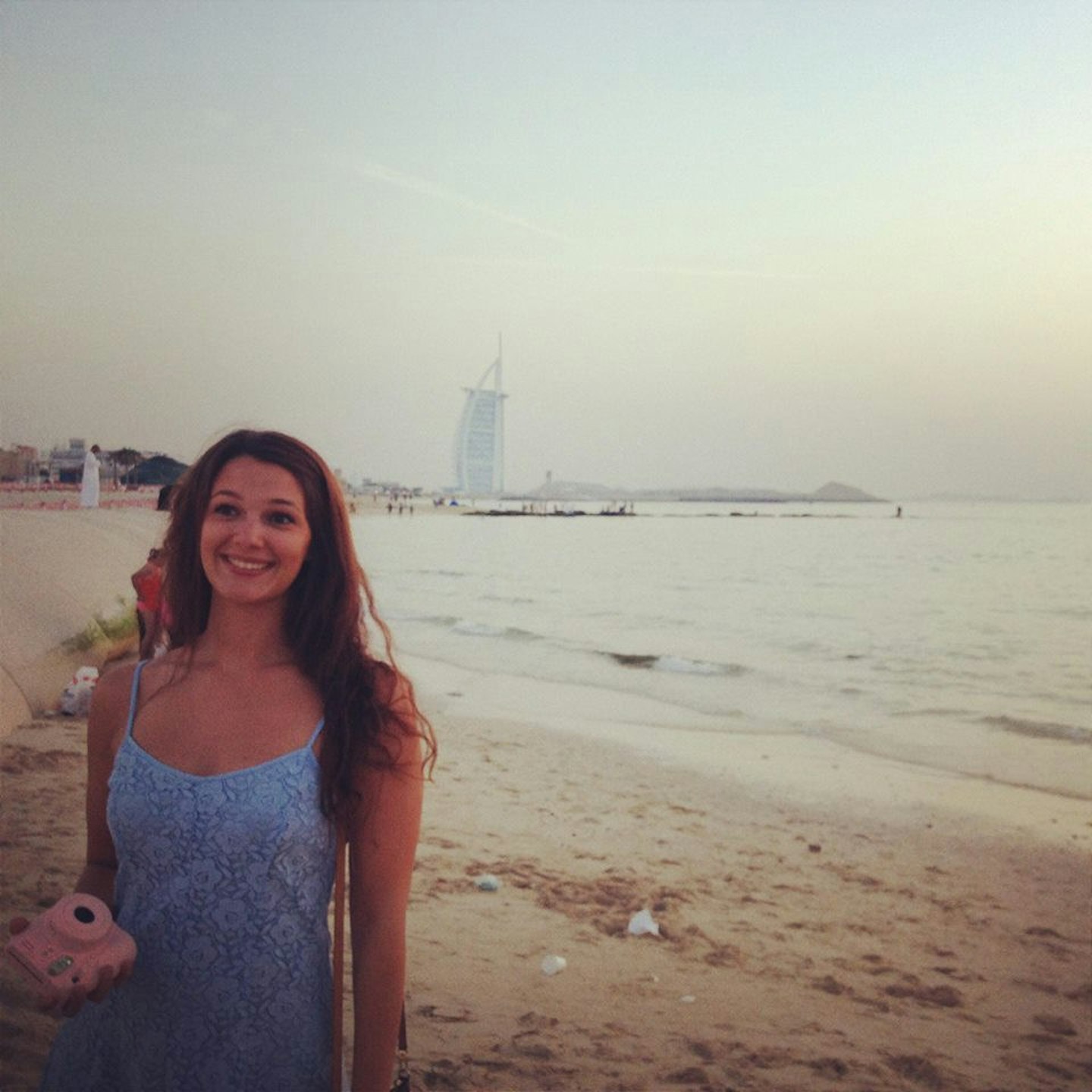Biting weather, sweaty central line commutes, barely paid internships and job opportunities thin on the ground – for most of us this is the reality of being a graduate in a British city – which explains why so many of us have looked East for job opportunities – the number of Brit expats in the UAE doubled from 120,000 to 240,000 between 2008 and 2012.
As the second largest state or emirate in the UAE after Abu Dhabi, Dubai is more than just the barren outpost in the oil-rich Gulf, it once was. It’s a sunny, concrete slab of opportunity. In fact, only about 8% of Dubai’s population are Emirati – the other 92% are expats.
Increasingly – and interestingly – more of these young expats are women. But is it really a viable option for most of us? Tales of British expats getting deported – or worse, landing themselves in jail after pissed nights out – are rife, while the gender inequality and habitual sexism sound exhausting. So why are so many of us making the move East? We spoke some twenty-something ladies that recently made the move from Britain to Dubai to find out what life as an expat in is really like.
‘Job progression is really good. I was promoted after only two years’
The one thing that everyone but one agreed on is that a move to Dubai will only be a good thing for your career (and your bank balance). Basically, you’ll get a job, given that you’re not a total ’nana.

Caroline, 23, moved over to Dubai from Northampton when she married two years ago. ‘I had researched companies in Dubai before I moved over and managed to find a job really quickly. It was so easy to get the visa approved.’ So far, so good. Even more competitive career paths are more open. And once you’re on the career ladder, the pace doesn’t seem to slow either. As Caroline told me, ‘Job progression is really good. I was promoted after only two years.’ Perfect for those with big ambitions and if you’ve felt looked over for promotions. There’s always the option of going out there, building up a portfolio and experience and returning to the UK at a later date.
Another massive boon is that you don’t pay tax, so it’s possible for expats to not only make but save a lot of money. Caroline agrees with this idea for the most part. ‘Grocery stores are typically the same price as in the UK, so if you are going to cook in lots it isn’t too bad – and anyway you don’t pay tax, so you are saving money in many other ways to when you live in England.’ What is slightly more expensive, however, is eating out and shopping. Caroline reckons that even a cheap meal costs around £30, which can add up in a country that’s known to be particularly social.
But you can’t escape the negative aspects of a move east. Google ‘Dubai expats’ and you’re faced with headline after headline about gross, hammered Brits abroad, who drink too much, have sex on the beach, in taxis and club toilets, or land themselves in jail for dealing weed. So how as a young woman in a conservative muslim country, how are you supposed to conduct yourself? Anna, a 30-year-old writer who used to live in Dubai explains. ‘There’s definite sense of restraint when out in Dubai. If you’re caught drunk and found stumbling about without an alcohol license, you can get hauled into prison – that puts a slight dampener on hitting the night with gusto. Equally, I wasn’t into baring flesh out there – not really beacause of the customs and rules, but because of the hordes of prostitutes that tended to congragate in the big clubs. One never wanted to be mistaken for a hooker.’
Emma, 22, from Newcastle was worried about her wardrobe before moving over to Dubai – especially her collection of heels and skirts. ‘I got rid of loads of my clothes that I deemed completely inappropriate,’ she said. ‘But that was a crazy idea. On nights out, most of the non-Muslim girls wear just as little clothing as you’d see at home.’ But although it’s easy to be complacent, it doesn’t take much to stick out as a young Brit. Emma says just being a white young woman in Dubai is enough to draw unwanted attention. ‘I’ve realised no matter where I go – whatever time or place or what I’m wearing – people are going to stare at me.’ There’s little you can do to avoid it, besides not going out at all. ‘Many of my friends find this and we just learn to ignore it,’ she explains.
Attitudes towards women may have progressed with an influx of female expats, but how you’re treated as a woman is different to that of a man on a very basic level – the attitude is still one of segregation. A young Brit who wanted to remain anonymous said this affected her day-to-day life. ‘From personal experience, the men in our new building would never look me in the eye. They would never respond to any of my queries unless my husband was there or if he asked for me. I found this quite frustrating.
‘None of us were dressed inappropriately but all the men completely stared at us, which was very uncomfortable. Some even took photos on their phones’
Emma adds that she had a few unsettling experiences while getting used to this cultural difference. ‘I took the Metro with a few female friends – we appeared to be the only girls in the whole carriage. None of us were dressed inappropriately, but all the men completely stared at us, which was very uncomfortable. Some even took photos on their phones.’ She later found out there is a separate woman’s and children carriage.
But this level of segregation isn’t seen by all young female expats as a negative thing – Caroline says there are times when being a woman can have advantages. ‘For example, all of the government buildings have special ladies only areas where you get seen much quicker, such as when renewing your visa. There are also special pink taxis which are only for ladies and are only driven by ladies, so you don’t have to worry about being in a taxi on your own with a male driver.’ But whether you see it as convenient, a safety measure and respectful towards women or unpleasant and worrying, it’s part of wider UAE culture. You shouldn’t go to Dubai expecting the same treatment as your British male counterparts.
But if you want to get the to crux of what life is like for anyone in Dubai, it’s worth noting that plenty of the women we spoke to for this piece were too frightened to be named, lest they lose their visas, or worse. One girl told us how she suffered from anxiety after moving over, struggling to settle in and make friends, but didn’t want to be named as she thinks her bosses would fire her if they saw the article. Another source, who works for a government body, told me she couldn’t be identified for fear of losing the visa she had pertained under her father’s name.
Despite this, Caroline would recommend Dubai for anyone who’s ‘independent, confident and not worried about moving far from home’. And if you are considering it, ‘It helps a lot if you know someone in Dubai,’ she advises. ‘However, I also know a lot of girls who moved here on their own and made it work.’ But whether you’re making the move for your social life, your career or your bank balance, the key thing to remember is, it’s certainly not London in the desert.
Liked this? You might also be interested in:
Moonshine, Alcopop Vending Machines And Handwash: Here's How People Get Drunk Around The World
Midnight Snogs, Champagne And Dancing: Here's What New Year's Eve Looks Like Around The World
Follow Hannah on Twitter @hannahrosewens
This article originally appeared on The Debrief.
